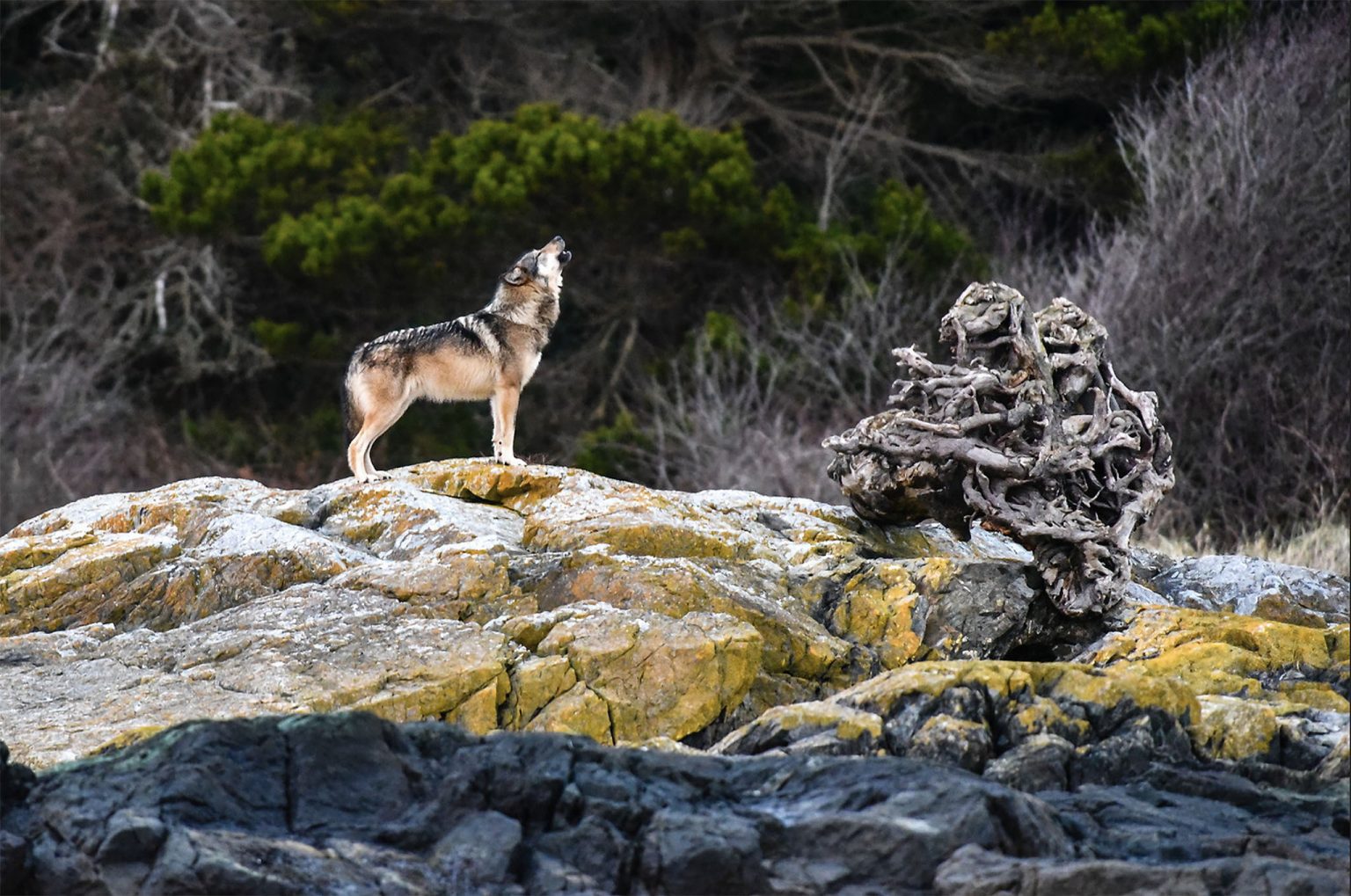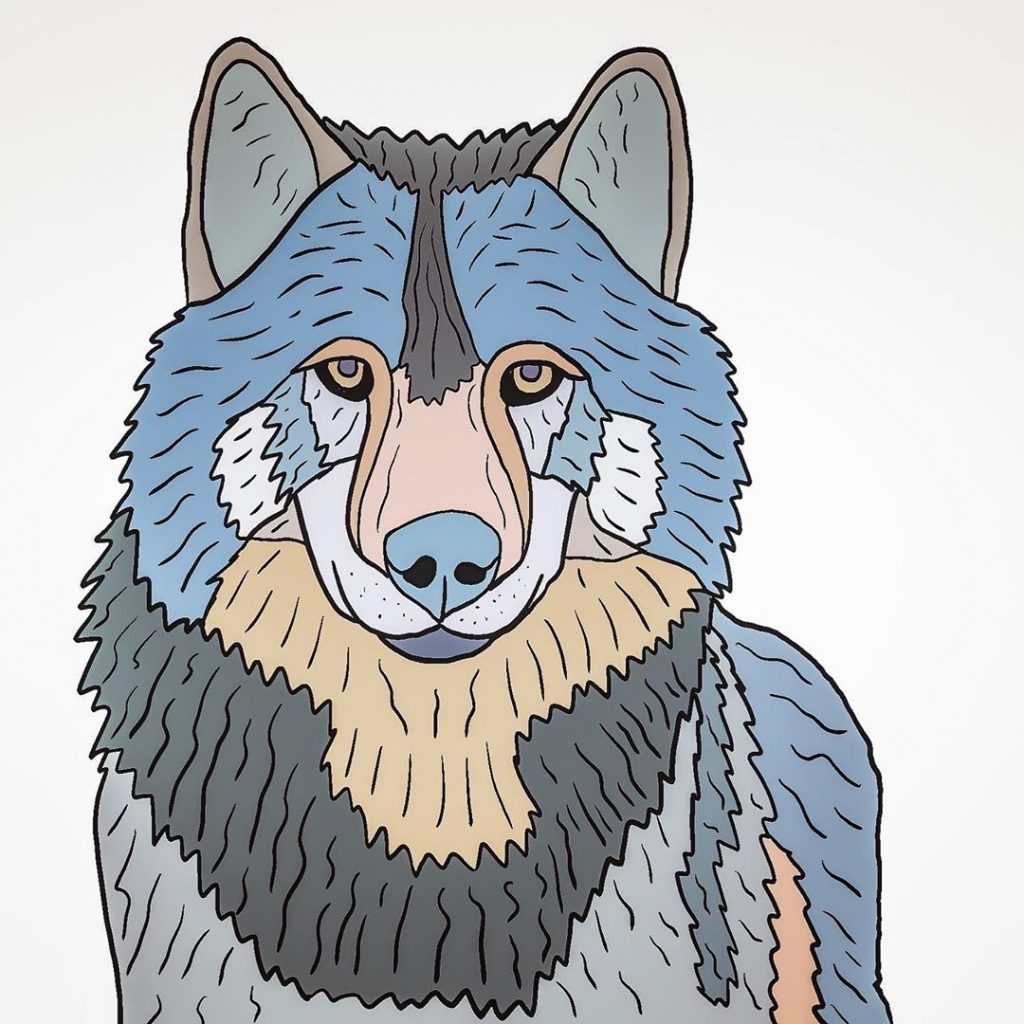- By Pacific Wild
- Photos by Cheryl Alexander
Many people around the world are outraged and saddened by the death of Takaya, the coastal sea wolf who lived on BC’s Discovery Island just off Victoria on Vancouver Island. Killed by a hunter in March less than 50 kilometres from where conservation officers relocated him in January of 2020, his death has only intensified the demand for change in how British Columbia manages apex predators and how our society views wolves. Knowing a wolf as an individual and not just a statistic changes the conversation. Pacific Wild supporters have been flooding our social media channels and writing in to call for a different approach.
While the killing of Takaya by one individual is sad and it is tragic, the systematic culling of entire packs of wolves in our province is unconscionable. Wolves are not simply a stand-alone species that can be culled from their ecosystems and then everything will be fine. They are individuals and family groups in a symbiotic relationship with their prey and the environments they inhabit. It is the human species that needs to examine our destruction of natural habitats and tame our appetites for natural resources. The endangered status of caribou in North America is on our shoulders but wolves are taking the fall, by the hundreds, every year in British Columbia, Alberta and the Northwest Territories.
The outcries coming from people around the world, many of whom had fallen in love with the ad agency concept of ‘Super Natural British Columbia’, are calling foul on the BC Government’s woeful mismanagement of wildlife and the ongoing destruction of the pristine places they have been promoting. After all, a country known for its parks and wilderness, and gentle and conscientious citizens has much to lose from the true story of unchecked predation of apex species by humans and the ever expanding degradation of critical habitat by resource industries.
Cheryl Alexander, the executive producer of the CBC – The Nature of Things film “Takaya – Lone Wolf”, has expressed her wish that Takaya should be remembered and celebrated, and that his unnecessary and unnatural death should count for something.
If you’d like to learn more about Takaya and Cheryl’s plans for his legacy, visit TakayaLoneWolf.com
Pacific Wild is calling on artists of all ages and abilities, as part of our Covid-19 community building efforts, to celebrate all species in the Great Bear Rainforest and beyond, through artistic expression. Our first subject in this series is Takaya, as photographed by Cheryl. We’re inviting amateur and professional artists to submit images of their art pieces with the hashtag #ArtForTakaya during the month of May.
Pacific Wild is also conducting a t-shirt design contest and putting out a call for designs suitable for screen printing (simple and graphical in style). Artists may submit their entries using the hashtag #TakayaShirt.
If you would like to support Pacific Wild’s Save BC Wolves campaign to help us end the horrific wolf cull in BC, please sign our petition.
Take Action for Takaya
Quick Actions
- Sign Pacific Wild’s Save BC Wolves petition (over 500,000 signatures and growing!)
- Contact your MLA to voice your concern
We’re calling on all artists to commemorate Takaya in the form of artwork. Paintings, sculptures, multimedia, textiles… If you can imagine it, we’d love to see it and share it. Don’t forget to share your submission with the hashtag #ArtForTakaya.
We will also be featuring one of the artwork submissions on a custom designed t-shirt!
learn more about takaya and bc wolves
- Watch Cheryl Alexander’s film Takaya: Lone Wolf on CBC Gem
- Visit Cheryl Alexander’s website & Instagram feed in memoriam of Takaya
- Explore & purchase Cheryl Alexander’s photos of Takaya
- Explore Pacific Wild’s Campaign against the BC Wolf Cull
- Articles & Books to Read:


